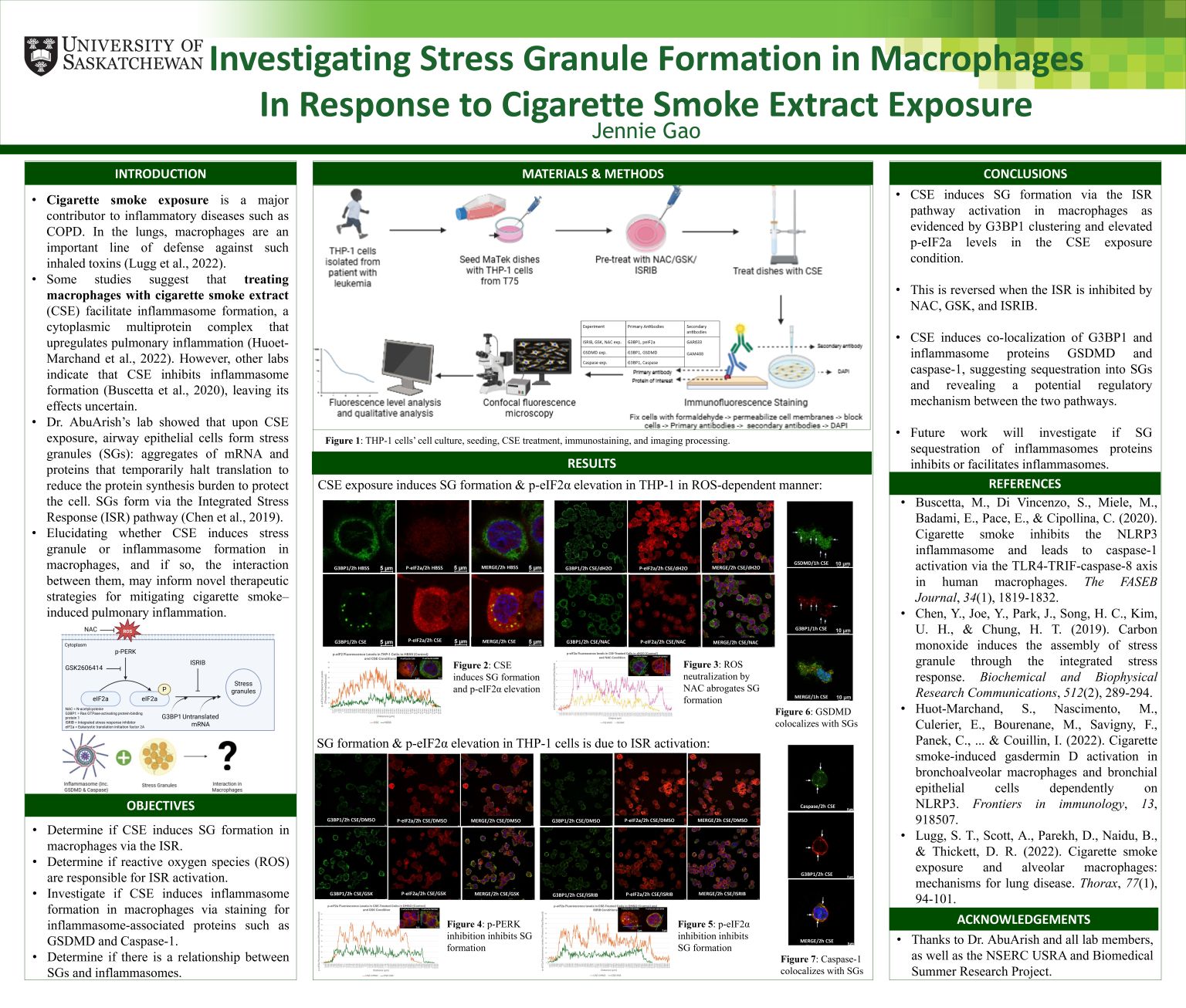
Investigating Stress Granule Formation in Macrophages in Response to Cigarette Smoke Extract Exposure
Jieni (Jennie) Gao
Cigarette smoke exposure is a major contributor to chronic inflammatory lung diseases such as chronic obstructive pulmonary disease (COPD), in which pulmonary macrophages are an important line of defense against inhaled toxins. While some studies suggest cigarette smoke extract (CSE) promotes inflammasome activation, others indicate inhibition, leaving CSE effects uncertain. It has been shown in Dr. AbuArish’s lab that CSE exposure induces stress granule (SG) formation, cytoplasmic aggregates of RNA and protein, but the pathway responsible requires determination. Here, we investigate whether CSE exposure induces SG formation via the activation of the Integrated Stress Response (ISR) pathway and whether inflammasomes form. Upon exposing THP-1 cells to CSE, immunofluorescence imaging demonstrates G3BP1(SG marker) clustering, indicating SG formation, and p-eIF2α elevation, indicating ISR activation. SG formation was inhibited by NAC, GSK, and ISRIB (ISR inhibitors). Furthermore, CSE exposure induced inflammasome proteins sequestration inside SGs, evidenced by co-localization of GSDMD and Caspase-1 inside G3BP1 clusters. These findings suggest that SGs form in macrophages in response to CSE and sequester inflammasome components, revealing a potential regulatory mechanism between the two stress pathways. Future work will determine whether inflammasome proteins sequestration inhibits or facilitates inflammasome formation, providing insight into therapeutic strategies for smoke-induced pulmonary inflammation.
